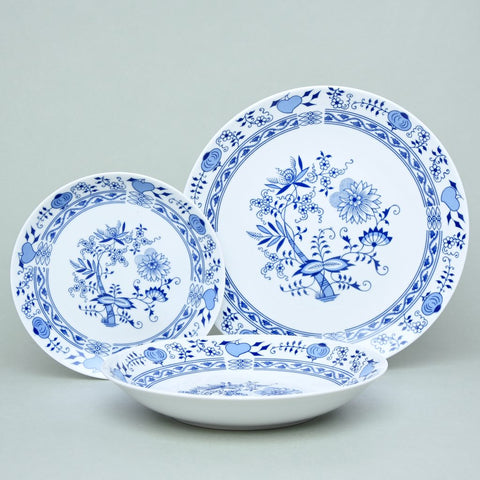When choosing the right dinnerware for your home, understanding the differences between pottery dishes vs porcelain dishes is essential. Each type of dish has unique characteristics that can impact your dining experience, style, and functionality. In this article, we will delve into the distinctions between pottery and porcelain dishes, highlighting the advantages of Jingdezhen porcelain for those seeking quality and elegance.

What Are Pottery Dishes?
Pottery dishes are typically made from clay and fired at relatively low temperatures. This category includes earthenware, stoneware, and other ceramic types. Here are some key characteristics of pottery dishes:
1. Material Composition
Pottery is primarily made from natural clay, which is shaped and then kiln-fired to create a durable product. The firing process influences the dish's final characteristics, including color, texture, and strength.
2. Appearance
Pottery dishes often have a rustic charm with variations in color and texture. They may come in earthy tones, showcasing the natural beauty of the clay. Hand-painted designs are common, adding an artisanal touch.
3. Durability and Maintenance
While pottery dishes can be sturdy, they are generally less durable than porcelain. They may absorb liquids, making them more susceptible to stains and odors. Additionally, some pottery may require careful handling to avoid chipping.
4. Heat Retention
Pottery dishes tend to retain heat well, making them suitable for serving hot meals. However, they may not be microwave or dishwasher safe unless specified by the manufacturer.
What Are Porcelain Dishes?
Porcelain dishes, particularly those crafted in Jingdezhen, are known for their exquisite quality and craftsmanship. Here are the defining features of porcelain dishes:
1. Material Composition
Porcelain is made from a specific type of clay combined with feldspar and quartz, which is fired at high temperatures. This results in a dense and durable material that is less porous than pottery.
2. Appearance
Jingdezhen porcelain is renowned for its elegant designs, often featuring intricate patterns and bright colors. The translucency and smooth finish give porcelain dishes a sophisticated look, making them suitable for formal dining.
3. Durability and Maintenance
Porcelain dishes are highly durable and resistant to chipping and cracking. They are non-porous, which means they do not absorb liquids or odors, making them easier to clean. Most porcelain is dishwasher and microwave safe, adding convenience for everyday use.
4. Versatility
Porcelain dishes are versatile and can be used for various purposes, from casual meals to upscale dining events. Their elegant appearance makes them a popular choice for entertaining guests.

Pottery Dishes vs Porcelain Dishes: Key Differences
Understanding the main differences between pottery and porcelain can help you make an informed decision when selecting dinnerware:
1. Firing Temperature
Porcelain is fired at much higher temperatures than pottery, resulting in a denser and more durable product. This high firing temperature also contributes to porcelain’s refined appearance.
2. Durability
Porcelain dishes are typically more durable than pottery. They are less prone to chipping, making them a better choice for regular use. Pottery, while charming, may require more delicate handling.
3. Aesthetic Appeal
While both pottery and porcelain can be beautiful, porcelain often has a more polished and refined look. Jingdezhen porcelain, in particular, stands out for its intricate designs and vibrant colors.
4. Maintenance and Care
Porcelain is generally easier to maintain due to its non-porous nature. Pottery may require special care to avoid staining and odors, while porcelain can often be cleaned in a dishwasher.
Choosing Between Pottery and Porcelain Dishes
When deciding between pottery dishes and porcelain dishes, consider the following factors:
1. Purpose
Think about how you intend to use the dinnerware. For everyday meals, porcelain may be more practical, while pottery can add a rustic charm to casual dining.
2. Style Preferences
Your personal style should influence your choice. If you prefer elegant and sophisticated designs, Jingdezhen porcelain is an excellent option. If you favor a more homey, artisanal feel, pottery may suit you better.
3. Care and Maintenance
Consider how much time you are willing to invest in maintaining your dinnerware. If you want low-maintenance options, porcelain is likely the better choice.
4. Budget
Generally, high-quality porcelain, especially from renowned manufacturers like Jingdezhen, may come at a higher price point compared to pottery. Balance your budget with your dining needs.
Conclusion
In the debate of pottery dishes vs porcelain dishes, both options have their merits. Pottery offers rustic charm and character, while porcelain, particularly Jingdezhen porcelain, excels in durability and elegance. Ultimately, your choice should reflect your personal style, usage, and care preferences. Investing in high-quality dinnerware enhances not only your dining experience but also the aesthetic of your table setting.
FAQs
What is the primary difference between pottery and porcelain?
The main difference lies in the firing temperature and material composition. Porcelain is fired at higher temperatures, resulting in a denser and more durable product.
Are pottery dishes safe for microwave use?
Not all pottery dishes are microwave safe. Always check the manufacturer's guidelines before using pottery in the microwave.
How do I care for porcelain dishes?
Porcelain dishes are typically easy to care for and can often be washed in the dishwasher. However, hand washing is recommended to maintain their beauty.
Is pottery more expensive than porcelain?
Pottery is generally more affordable than high-quality porcelain. However, prices can vary based on craftsmanship and design.
Can I use porcelain dishes for formal occasions?
Yes, porcelain dishes, especially those from Jingdezhen, are perfect for formal occasions due to their elegant designs and sophisticated appearance.
Do pottery dishes retain heat better than porcelain?
Yes, pottery dishes tend to retain heat well, making them suitable for serving hot meals. However, porcelain can also maintain the temperature of food effectively.



